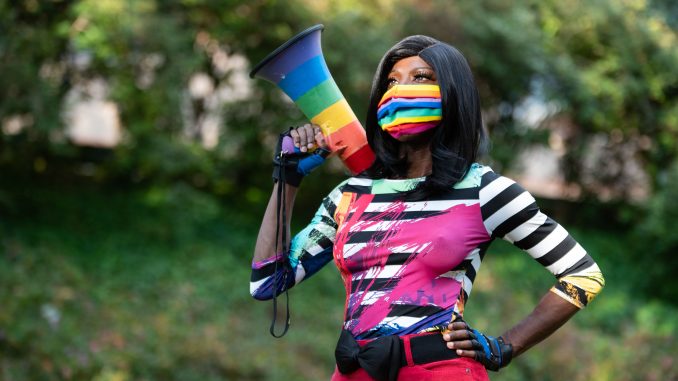
My life as a transgender woman has been a rollercoaster of societal rejection, familial abandonment, housing and food insecurity, employment discrimination and transphobic harassment and attacks. But still, I thrive despite my grim circumstances.
My mother tossed me onto the street when I was a teenager after discovering I was transgender, and I was left with very little options. I had to learn how to survive on the streets. For almost seven years, I experienced chronic homelessness. I had to dumpster dive for clothing and food and denounce my gender to become eligible for public shelters. I never received help securing public housing assistance, as this year marks my 15th year remaining on the Philadelphia Housing Authority’s waiting list.
No one heard my cries for help. No one was there for me when I was being beaten, abused, mistreated and forced to live on the fringes of society. I was brutally attacked inside of my home in August by a group of weapon-wielding transphobes while my godchildren were inside.
Though still traumatized and unnerved by the incident, I maintain my resolve and commitment to the LGBTQ community, working towards advocacy as a Temple University student.
Being a transgender woman of color and living below the poverty line, I have to navigate and carve out platforms that bring attention to the plight of trans women of color. Through these lenses, I hope to knock down the myriad of barriers, like a lack of educational opportunities and long-term safe housing opportunities, that keep Black and brown LGBTQ people from reaching the heights of their potential.
More often than not, the only platforms we enjoy are those provided to us by our allies, as the trans community is systematically shut out from opportunities to be empowered. Allyship is so important; we need allies to not only speak out on our behalf, but also create spaces for our voices to be heard.
The government has a constitutional and moral responsibility to implement trans-affirming social policies and encourage society to invest in healthy community intersectionality. Instead, we’ve seen the opposite. Many communities have absorbed, projected and recycled the suffering that our socio-historical environments have wrought against our most vulnerable communities, which is why I advocate tirelessly to create safe havens for transgender and gender non-conforming individuals.
As per my advocacy work, I want to pursue federal-state uniformity in hate crime and equality bills for the LGBTQ community. We are reeling from the copious disparities that the current presidential administration has deepened in our community by repealing LGBTQ civil rights protections, adding anti-LGBTQ laws and refusing to enter protective LGBTQ policies into legislation. Enough is enough.
As violence against my trans community continues to escalate, I want to see all of our communities speak with each other in safe spaces so we can work on healing. It is time to protect each other from injustices, not be an active participant in those injustices. I believe this is what makes Temple such a forward-thinking, culturally progressive institution of learning: its ability to be a protective factor to its most marginalized students and faculty.
I am thrilled to be a part of such an inclusive and diverse safe haven as Temple. After all, an owl, by nature, is a wise bird capable of seeing objects in three dimensions. Our Temple owls are no different, able to see and appreciate the entirety of a person from all sides and show appreciation for them as a human being. Temple has provided me with a platform to reach the masses with messages of community-building and healing.
We must be an example for other colleges and universities to be inspired and motivated to follow. Change will come for the LGBTQ community, especially trans folks, but we need all of our Temple owls to flock in collective purpose if we want our efforts in our fight against social injustice to prevail once and for all.


Be the first to comment